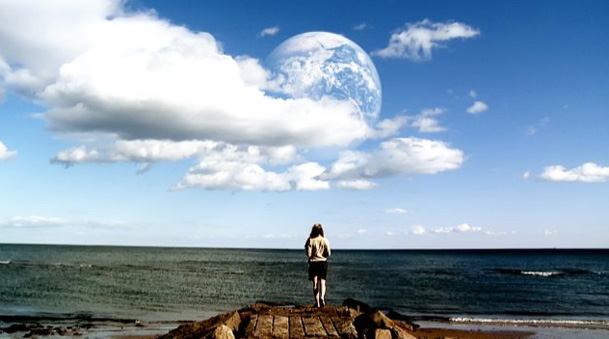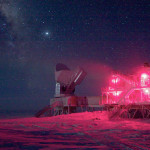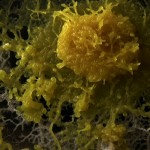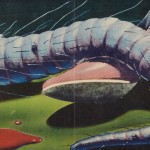CEREBRAL SCI-FI: “ANOTHER EARTH” “EXIT” and “LOVE”
CEREBRAL SCI-FI: Exploring Psychedelic Space in Another Earth, Exit and LOVE
Kier-La Janisse
Sometimes I think the best sci-fi can cialis fast delivery usa all take place in your mind. Although often touted as a big-budget genre, sci-fi is full of quiet revolutions, speculative fictions that – while sometimes logically challenging – do more to shape how we go forward in relation to the world around us than any dogmatic treatise or self-help book can hope to. From THX-1138 (1971)to Primer (2004) and The Clone Returns Home (2008) (or even Jeff Lieberman’s 1988 cheeseball classic Remote Control, which was more prescient than people gave it credit for at the time), sci-fi gives us food for thought. It discount drug propecia asks the kinds of questions that religion and philosophy used to ask. With technology supplanting old beliefs it makes sense that this (often) populist genre becomes a new platform for exploring ethical and social challenges.
Mike Cahill (Boxers and Ballerinas) makes his narrative feature debut with the awe-inspiring Another Earth, a story that posits a mirroring planet called Earth 2 within view of our own – a planet where another version of ourselves lives another version of our life. But because dopplegangers are never exact duplicates, it prompts inevitable questions among those on Earth 1: “Has the other me made the same mistakes I’ve made?” “What if the other me is a better person than I am?” While the concept of a second, identical Earth was explored in Gerry ‘supermarionation’ Anderson’s 1969 live-action film Journey to the Far Side of the Sun (aka Doppleganger), Cahill and co-writer Brit Marling have imbued that concept with a human interiority that the Andersons’ space-travel adventure didn’t prioritize (not that the latter is devoid of introspection).
In Another Earth, Marling plays Rhonda, an astrophysics student whose future at MIT is cut short by a tragic car that sees her in prison discount viagra cialis levitra online for four years for manslaughter. Stricken with guilt, she seeks out the accident’s lone survivor, hoping to beg his forgiveness. But she loses her nerve at the last second, and instead claims to be a housekeeper looking for work, insinuating herself into the life of this emotionally-shattered man as a friend and confidante. When Rhonda has an opportunity to visit Earth 2, her deliberation is necessarily coloured by the traumatic events of her life – and the possibility of living in a parallel world where those events never transpired. Sometimes obliteration is much easier than the painful process of healing. In this way the film also recalls Moon Seung-wook’s Nabi:The Butterfly (2002), in which a young woman is on a quest for The Oblivion Virus, a contagious memory-erasing illness that has come into vogue among those with painful pasts. [spoiler alert] But when she gets to the office to register for the virus, she’s already on file.
The promise of a parallel universe also comes into play in Marek Polgar’s Australian sci-fi Exit, also playing this year’s Fantasia. In Exit, an age-old legend holds that there is a secret door somewhere in the middle of the city that opens into a parallel universe, and the demoralized citizens of our world spend copious amounts of time searching for the door that will bring them happiness. But in Calvino-esque fashion, the city keeps changing and growing, making their quest more impossible by the day. Maps and magic alike are consulted in the hope that the fabled door is real and that their depressing existence isn’t all there is.
Like fellow Antipodean film The Navigator (1988) in which a group of medieval villagers seeking refuge from the Black Death – and prompted by a young boy’s psychic visions – dig an underground tunnel that sees them emerge in 20th century New Zealand, this concept of a mythical ‘better place’ is meant to be an admonition. There is no better place. We know this. But we still can’t help looking for it. When I was a kid I was convinced that behind the wood panelling in my basement, there was a tunnel that led to Sesame Street . My parents would never allow me to remove the panelling to find out for sure, but I’m guessing that, like the characters in these films, I would be met with disappointment.
The protagonist in William Eubank’s LOVE – the opening film in this year’s Camera Lucida section – looks for a better world though his own imagination when he is abandoned on a space mission and finds himself hovering over the Earth for years after losing contact with mission control. With oxygen and supplies that were only intended to last a matter of months, he begins to deteriorate physically and mentally. Slipping into delusion, he has conversations with people who do not exist, this fictional company reinforced by the discovery of a mysterious diary on board the tiny space station – the diary of a wandering soldier from the Civil War. Reading the entries out loud, and recreating epic battle scenes in his mind that mirror his own sense of oppressive isolation, he becomes convinced that the diary’s narrator witnessed something awesome, some proof of an existence greater than our own . But like Kubrick’s 2001 (which the film clearly alludes to both structurally and thematically) this is more than the tale of a man trapped in space – it is the story of our continuing historical inability to communicate with our surroundings in anything other than fleeting moments of connection.
The film effortlessly jumps back and forth through the past, present and future: magnificent wartime tableaux contrast with life aboard the space station, and are intermingled with video recordings of average people in the present who discuss their means of engaging with the world, of dealing with solitude, and what to do with happiness – however brief – when we find it. It is a stunning achievement that is made even more remarkable given its supposedly low budget (the space station was completely constructed in the filmmaker’s backyard), and clear proof that sci-fi continues to be a crucial and relevant source of philosophical musing.
—————
ANOTHER EARTH has its Canadian Premiere on July 17 at 4:30pm in the Hall Theatre. Screening with Another Earth is actor and film critic Axelle Carolyn’s directorial debut THE LAST POST, produced and edited by Neil Marshall. More details on the film page HERE.
EXIT has its World Premiere on Aug. 4at 7pm and screens again on Aug. 6 at 7:30pm, both in the Salle JA DeSeve. More details on the film page HERE.
LOVE has its International Premiere on July 18 at 9:30pm in the Hall Theatre. More details on the film page HERE.

 August 6, 2011
August 6, 2011  No Comments
No Comments









